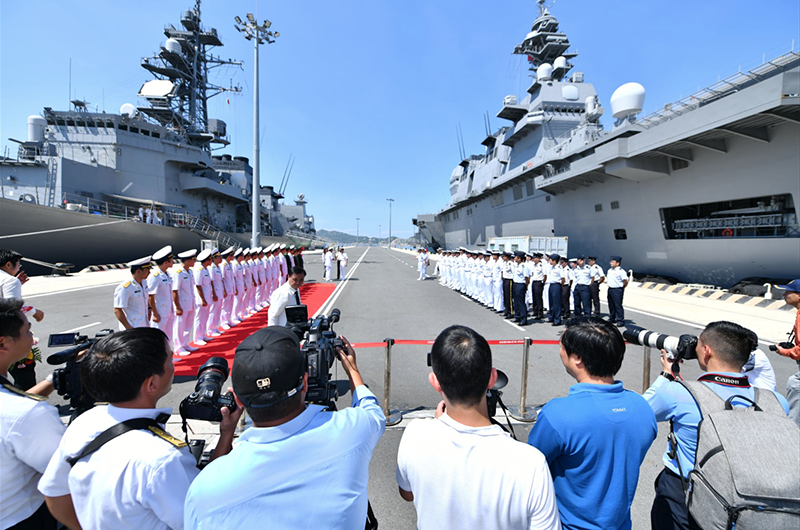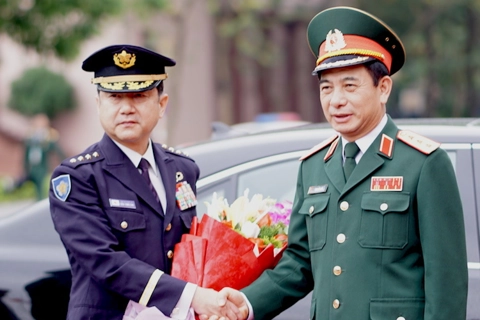Japan helps Vietnam improve maritime capacity with US$347 million loan
The project significantly enables Vietnam to enhance freedom of navigation.
The Japan International Cooperation Agency (JICA) on July 28 signed an agreement to provide Vietnam JPY36.6 billion (US$347 million) to help the Southeast Asian country improve coast guard capacity to enhance freedom of navigation.
| Japan’s largest flattop visits Vietnam’s Cam Ranh port in June 2019. Photo: Japan Maritime Self-Defense Force (JMSDF) |
The loan will bear an annual interest rate of 0.1%, have a repayment period of 40 years and a grace period of 10 years.
Through the Maritime Security and Safety Capacity Improvement Project, the JICA will enable the Vietnam Coast Guard (VCG) to procure vessels, supporting an improvement in maritime rescue operations and maritime law enforcement.
The project will contribute to the achievement of SDGs Goals 14 and 16 and the realization of a free and open Indo-Pacific, the JICA said in a press release Tuesday.
The project is of great meaning for Vietnam, a narrow, long country with a long coastline.
In addition, there has been an increasing risk of maritime accidents in recent years due to (i) an increase in fishery activities and freight transportation, and (ii) a rise in natural disasters in the form of typhoons in summer and tidal waves in the monsoon season.
Moreover, a rising risk of maritime crimes including smuggling and piracy will also be a matter of concern.
This project is subject to Special Terms for Economic Partnership (STEP) that will be applied to the Japanese official development assistance (ODA) loan, and for which, Japanese shipbuilding technologies will be utilized.
STEP refers to special assistance terms for promoting the visibility of Japanese aid through a transfer of outstanding Japanese technology and expertise to developing nations.
The main contract is Japan tied and subcontracting is general untied. The main agreement partner must generally be a Japanese company, an overseas subsidiary of a Japanese company, or a joint venture between a Japanese company and the borrowing country where the Japanese company is the lead partner, although under certain conditions a joint venture between a Japanese company (which is the lead partner of the joint venture) and an affiliated company (as accounted under the equity method) of a Japanese company may be the main agreement partner.
Vietnam and Japan, in the spirit of the Memorandum of Understanding on Bilateral Defense Cooperation and Exchanges signed in October 2011 and the Joint Vision Statement on Defense Cooperation towards the next decade signed by the two defense ministries in April 2018, have promoted bilateral defense cooperation in an effective manner.












